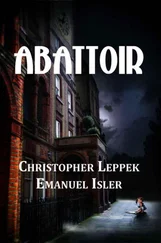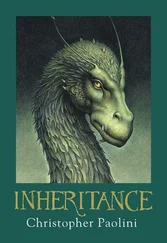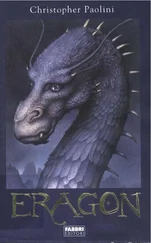Christopher Paolini - Eragon [en]
Здесь есть возможность читать онлайн «Christopher Paolini - Eragon [en]» весь текст электронной книги совершенно бесплатно (целиком полную версию без сокращений). В некоторых случаях можно слушать аудио, скачать через торрент в формате fb2 и присутствует краткое содержание. Жанр: Фэнтези, на английском языке. Описание произведения, (предисловие) а так же отзывы посетителей доступны на портале библиотеки ЛибКат.
- Название:Eragon [en]
- Автор:
- Жанр:
- Год:неизвестен
- ISBN:нет данных
- Рейтинг книги:3 / 5. Голосов: 1
-
Избранное:Добавить в избранное
- Отзывы:
-
Ваша оценка:
- 60
- 1
- 2
- 3
- 4
- 5
Eragon [en]: краткое содержание, описание и аннотация
Предлагаем к чтению аннотацию, описание, краткое содержание или предисловие (зависит от того, что написал сам автор книги «Eragon [en]»). Если вы не нашли необходимую информацию о книге — напишите в комментариях, мы постараемся отыскать её.
Eragon [en] — читать онлайн бесплатно полную книгу (весь текст) целиком
Ниже представлен текст книги, разбитый по страницам. Система сохранения места последней прочитанной страницы, позволяет с удобством читать онлайн бесплатно книгу «Eragon [en]», без необходимости каждый раз заново искать на чём Вы остановились. Поставьте закладку, и сможете в любой момент перейти на страницу, на которой закончили чтение.
Интервал:
Закладка:
“A vast subject to tell about,” grumbled Brom. He peered at Eragon alertly. “If I told you their whole story, we would still be sitting here when winter comes again. It will have to be reduced to a manageable length. But before we start properly, I need my pipe.”
Eragon waited patiently as Brom tamped down the tobacco. He liked Brom. The old man was irascible at times, but he never seemed to mind taking time for Eragon. Eragon had once asked him where he came from, and Brom had laughed, saying, “A village much like Carvahall, only not quite as interesting.” Curiosity aroused, Eragon asked his uncle. But Garrow could only tell him that Brom had bought a house in Carvahall nearly fifteen years ago and had lived there quietly ever since.
Brom used a tinderbox to light the pipe. He puffed a few times, then said, “There... we won’t have to stop, except for the tea. Now, about the Riders, or the Shur’tugal, as they are called by the elves. Where to start? They spanned countless years and, at the height of their power, held sway over twice the Empire’s lands. Numerous stories have been told about them, most nonsense. If you believed everything said, you would expect them to have the powers of a lesser god. Scholars have devoted entire lives to separating these fictions from fact, but it’s doubtful any of them will succeed. However, it isn’t an impossible task if we confine ourselves to the three areas you specified: how the Riders began, why they were so highly regarded, and where dragons came from. I shall start with the last item.” Eragon settled back and listened to the man’s mesmerizing voice.
“Dragons have no beginning, unless it lies with the creation of Alagaësia itself. And if they have an end, it will be when this world perishes, for they suffer as the land does. They, the dwarves, and a few others are the true inhabitants of this land. They lived here before all others, strong and proud in their elemental glory. Their world was unchanging until the first elves sailed over the sea on their silver ships.”
“Where did the elves come from?” interrupted Eragon. “And why are they called the fair folk? Do they really exist?”
Brom scowled. “Do you want your original questions answered or not? They won’t be if you want to explore every obscure piece of knowledge.”
“Sorry,” said Eragon. He dipped his head and tried to look contrite.
“No, you’re not,” said Brom with some amusement. He shifted his gaze to the fire and watched it lick the underside of the kettle. “If you must know, elves are not legends, and they are called the fair folk because they are more graceful than any of the other races. They come from what they call Alalea, though none but they know what, or even where, it is.
“Now,” he glared from under his bushy eyebrows to make sure there would be no more interruptions, “the elves were a proud race then, and strong in magic. At first they regarded dragons as mere animals. From that belief rose a deadly mistake. A brash elven youth hunted down a dragon, as he would a stag, and killed it. Outraged, the dragons ambushed and slaughtered the elf. Unfortunately, the bloodletting did not stop there. The dragons massed together and attacked the entire elven nation. Dismayed by the terrible misunderstanding, the elves tried to end the hostilities, but couldn’t find a way to communicate with the dragons.
“Thus, to greatly abbreviate a complicated series of occurrences, there was a very long and very bloody war, which both sides later regretted. At the beginning the elves fought only to defend themselves, for they were reluctant to escalate the fighting, but the dragons’ ferocity eventually forced them to attack for their own survival. This lasted for five years and would have continued for much longer if an elf called Eragon hadn’t found a dragon egg.” Eragon blinked in surprise. “Ah, I see you didn’t know of your namesake,” said Brom.
“No.” The teakettle whistled stridently. Why was I named after an elf?
“Then you should find this all the more interesting,” said Brom. He hooked the kettle out of the fire and poured boiling water into two cups. Handing one to Eragon, he warned, “These leaves don’t need to steep long, so drink it quickly before it gets too strong.” Eragon tried a sip, but scalded his tongue. Brom set his own cup aside and continued smoking the pipe.
“No one knows why that egg was abandoned. Some say the parents were killed in an elven attack. Others believe the dragons purposefully left it there. Either way, Eragon saw the value of raising a friendly dragon. He cared for it secretly and, in the custom of the ancient language, named him Bid’Daum. When Bid’Daum had grown to a good size, they traveled together among the dragons and convinced them to live in peace with the elves. Treaties were formed between the two races. To ensure that war would never break out again, they decided that it was necessary to establish the Riders.
“At first the Riders were intended merely as a means of communication between the elves and dragons. However, as time passed, their worth was recognized and they were given ever more authority. Eventually they took the island Vroengard for their home and built a city on it — Dorú Areaba. Before Galbatorix overthrew them, the Riders held more power than all the kings in Alagaësia. Now I believe I have answered two of your questions.”
“Yes,” said Eragon absently. It seemed like an incredible coincidence that he had been named after the first Rider. For some reason his name did not feel the same anymore. “What does Eragon mean?”
“I don’t know,” said Brom. “It’s very old. I doubt anyone remembers except the elves, and fortune would have to smile greatly before you talked with one. It is a good name to have, though; you should be proud of it. Not everyone has one so honorable.”
Eragon brushed the matter from his mind and focused on what he had learned from Brom; there was something missing. “I don’t understand. Where were we when the Riders were created?”
“We?” asked Brom, raising an eyebrow.
“You know, all of us.” Eragon waved his hands vaguely. “Humans in general.”
Brom laughed. “We are no more native to this land than the elves. It took our ancestors another three centuries to arrive here and join the Riders.”
“That can’t be,” protested Eragon. “We’ve always lived in Palancar Valley.”
“That might be true for a few generations, but beyond that, no. It isn’t even true for you, Eragon,” said Brom gently. “Though you consider yourself part of Garrow’s family, and rightly so, your sire was not from here. Ask around and you’ll find many people who haven’t been here that long. This valley is old and hasn’t always belonged to us.”
Eragon scowled and gulped at the tea. It was still hot enough to burn his throat. This was his home, regardless of who his father was! “What happened to the dwarves after the Riders were destroyed?”
“No one really knows. They fought with the Riders through the first few battles, but when it became clear Galbatorix was going to win, they sealed all the known entrances to their tunnels and disappeared underground. As far as I know, not one has been seen since.”
“And the dragons?” he asked. “What of them? Surely they weren’t all killed.”
Brom answered sorrowfully, “That is the greatest mystery in Alagaësia nowadays: How many dragons survived Galbatorix’s murderous slaughter? He spared those who agreed to serve him, but only the twisted dragons of the Forsworn would assist his madness. If any dragons aside from Shruikan are still alive, they have hidden themselves so they will never be found by the Empire.”
So where did my dragon come from? wondered Eragon. “Were the Urgals here when the elves came to Alagaësia?” he asked.
Читать дальшеИнтервал:
Закладка:
Похожие книги на «Eragon [en]»
Представляем Вашему вниманию похожие книги на «Eragon [en]» списком для выбора. Мы отобрали схожую по названию и смыслу литературу в надежде предоставить читателям больше вариантов отыскать новые, интересные, ещё непрочитанные произведения.
Обсуждение, отзывы о книге «Eragon [en]» и просто собственные мнения читателей. Оставьте ваши комментарии, напишите, что Вы думаете о произведении, его смысле или главных героях. Укажите что конкретно понравилось, а что нет, и почему Вы так считаете.
![Christopher Paolini Eragon [en] обложка книги](/books/248440/christopher-paolini-eragon-en-cover.webp)





![Christopher Paolini - Brisingr [en]](/books/195528/christopher-paolini-brisingr-en-thumb.webp)

![Christopher Paolini - Eldest [en]](/books/223279/christopher-paolini-eldest-en-thumb.webp)



